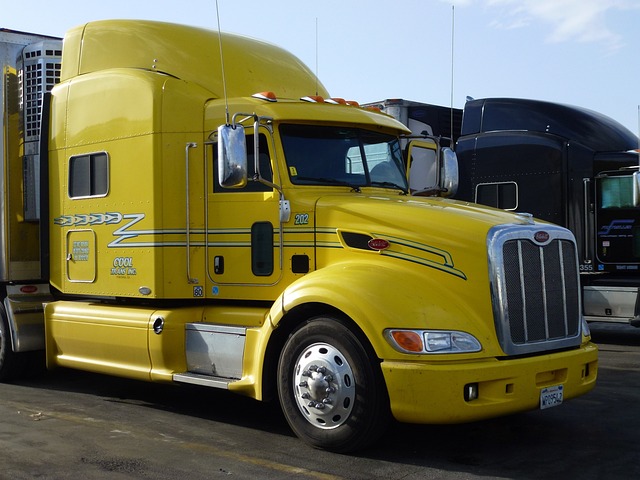Tow truck fleets face unique challenges like 24/7 operations and rapid response times, requiring robust tow truck coverage tailored for their high-risk nature. This coverage includes property damage protection, personal injury liability, and specialized vehicle replacement costs. Integrated solutions such as GPS tracking, maintenance software, and proactive insurance policies ensure safe, efficient, and reliable fleet management, optimizing routes, minimizing downtime, and reducing costs in a competitive market.
In today’s 24/7 world, reliable tow truck fleets are essential for efficient road assistance. This article delves into the intricacies of managing these operations, focusing on unique challenges faced by fleet owners. We explore the paramount importance of comprehensive insurance coverage, highlighting how it safeguards businesses from unforeseen events. Key components of robust tow truck coverage are dissected, offering insights to optimize costs without compromising protection. Learn strategies to navigate financial complexities and ensure your tow truck fleet remains resilient in a dynamic environment.
- Understanding Tow Truck Fleet Operations and Unique Challenges
- The Importance of Comprehensive Insurance Coverage for Tow Trucks
- Key Components of Reliable Tow Truck Coverage
- Strategies to Optimize Costs While Ensuring Adequate Protection for Tow Truck Fleets
Understanding Tow Truck Fleet Operations and Unique Challenges

Tow truck fleets play a crucial role in emergency road assistance and transportation services, ensuring vehicles are towed safely and efficiently. These operations involve 24/7 availability, rapid response times, and diverse fleet management challenges. Each tow truck is equipped with specialized equipment and requires regular maintenance to meet safety standards, contributing to higher operational costs.
One of the unique challenges is managing a dispersed fleet, often operating in diverse geographical locations. Effective tow truck coverage demands real-time tracking, efficient scheduling, and rapid deployment strategies. Moreover, regulatory compliance and insurance requirements add complexity, necessitating tailored risk management solutions. Reliable coverage for tow truck fleets involves comprehensive insurance policies that address these specific operational needs and risks.
The Importance of Comprehensive Insurance Coverage for Tow Trucks

In the fast-paced and often hazardous world of towing, having reliable tow truck coverage is more than just a suggestion—it’s a necessity. Comprehensive insurance protection for tow trucks isn’t just about mitigating financial risks; it plays a pivotal role in ensuring the safety of both fleet operators and the general public. Towing operations frequently involve navigating busy roads, handling damaged or disabled vehicles, and working in various weather conditions, all of which carry inherent risks.
Adequate tow truck coverage protects against potential liabilities, including property damage, personal injury, and legal expenses that may arise from accidents, collisions, or incidents during towing operations. It also covers the costs associated with repairing or replacing tow trucks themselves, which can be substantial given the specialized nature of these vehicles and their constant exposure to challenging work environments. By securing robust tow truck coverage, fleet managers demonstrate a commitment to protecting their investments and ensuring smooth, safe, and legally compliant operations.
Key Components of Reliable Tow Truck Coverage

Reliable tow truck operations hinge on robust and comprehensive tow truck coverage. This includes several key components that ensure smooth, safe, and efficient fleet management. First and foremost, adequate insurance is paramount. Specialized policies catering to the unique risks associated with towing, such as vehicle damage during transport or liability in case of accidents, are essential.
Next, GPS tracking systems play a crucial role in real-time location monitoring of tow trucks. This enables efficient dispatch, reduces response times, and enhances overall fleet visibility. Additionally, integrating maintenance management software helps schedule proactive servicing, minimizing downtime due to mechanical failures. By prioritizing these components, tow truck operators can ensure their fleets are prepared to provide reliable coverage at all times.
Strategies to Optimize Costs While Ensuring Adequate Protection for Tow Truck Fleets

In the competitive world of towing services, maintaining a fleet of tow trucks requires strategic decision-making to optimize costs while ensuring reliable protection. One key approach is to adopt a proactive maintenance program. Regular inspections and timely repairs can significantly reduce unexpected breakdowns, which are costly to both the business and the fleet’s operational efficiency. By implementing predictive maintenance technologies, tow truck operators can stay ahead of potential issues, minimizing downtime.
Additionally, leveraging technology for real-time tracking enhances safety and cost management. GPS monitoring allows dispatchers to optimize route planning, reducing fuel expenses and ensuring faster response times. This data-driven approach enables businesses to make informed choices about their fleet’s insurance coverage, selecting policies tailored to their specific needs. Thus, they can strike a balance between adequate protection and cost-efficiency, a crucial strategy in the competitive tow truck industry.
In conclusion, reliable tow truck coverage is essential for fleet operators to mitigate risks and optimize costs. By understanding the unique challenges of this industry, choosing comprehensive insurance options tailored to their needs, and implementing strategic cost-saving measures, operators can ensure their fleets are protected while enhancing overall operational efficiency.
